How Blockchain is Building Trust in Financial Transactions.
Securing Financial Ecosystems with Blockchain Technology.
In the digital age, the security and integrity of financial transactions are paramount. Blockchain technology, renowned for its robust security features and transparency, is revolutionizing the way we conduct financial operations. As a decentralized ledger, blockchain ensures that each transaction is recorded securely, transparently, and irreversibly, making it a cornerstone technology for platforms requiring high trust, like Token Genius. Our adoption of blockchain reflects a commitment to providing the most secure and trustworthy service to our clients. This article explores the inherent features of blockchain that foster trust and examines how they’re crucial in transforming financial transactions, making them safer and more reliable than ever before.
Inherent Features of Blockchain
Blockchain technology offers several key features that significantly contribute to its ability to secure financial transactions. These features include:
- Decentralization: Unlike traditional centralized systems, blockchain distributes data across a network of computers, making it nearly impossible for hackers to compromise the data integrity from a single point of failure.
- Encryption: Every transaction on the blockchain is secured through advanced cryptographic techniques, ensuring that all data is protected from unauthorized access.
- Consensus Algorithms: Blockchain utilizes various consensus mechanisms like Proof of Work (PoW) and Proof of Stake (PoS), which help to validate transactions without the need for a trusted third party, reducing the risk of fraud and corruption.
Impact on Financial Transactions
The application of blockchain’s core features has profound implications for financial transactions:
- Reduced Fraud: The immutability of blockchain ensures that once a transaction is recorded, it cannot be altered or deleted, significantly reducing the possibilities for fraud.
- Enhanced Transparency: Each transaction is visible to all network participants and can be audited in real-time, which increases transparency and trust among users.
- Improved Auditability: The permanent and time-stamped record of all transactions simplifies the audit process, making it easier to verify the authenticity of financial data without extensive paperwork.
Comparative Analysis with Traditional Systems
Comparing blockchain with traditional financial systems reveals significant improvements:
- Security: Traditional systems often rely on a central authority, which can be a single point of failure susceptible to cyber-attacks, whereas blockchain’s decentralized nature inherently protects against such vulnerabilities.
- Efficiency: Blockchain automates many processes associated with financial transactions, such as compliance checks and clearing, which can take days in conventional settings.
- Cost-effectiveness: By reducing the need for middlemen and reducing instances of fraud, blockchain can lower the costs associated with financial transactions.
Case Studies
Several case studies highlight the successful integration of blockchain in financial services:
- Cross-border Payments: Blockchain technology has enabled faster, cheaper, and more transparent cross-border payments, bypassing traditional banking systems and their associated fees.
- Securities Settlement: Companies like Token Genius have leveraged blockchain to streamline the process of securities settlement, reducing the settlement time from days to mere minutes, and enhancing security throughout the transaction process.
Reduction in Fraud Cases
Blockchain technology has markedly reduced instances of financial fraud. By ensuring that all transactions are permanently recorded and transparently available on a decentralized ledger, blockchain makes it exceedingly difficult for fraudulent activities to go unnoticed or be manipulated. Studies have shown a significant decline in fraud within sectors that have adopted blockchain, with some reports citing reductions as high as 30% in industries prone to high levels of fraud, such as insurance and banking.
Cost Reductions in Financial Operations
Adopting blockchain technology has also led to substantial cost savings in financial operations. By automating processes such as compliance, transaction verification, and record-keeping, blockchain minimizes the need for manual intervention and reduces labor costs. Furthermore, it lowers transaction fees by eliminating intermediaries such as banks and payment processors, directly benefiting the end users. Estimates suggest that blockchain can reduce transaction costs by up to 70%, making financial services more affordable for consumers and businesses alike.
Regulatory Acceptance and Compliance
Blockchain’s impact extends into the regulatory sphere, where it offers enhanced capabilities for compliance with financial regulations. Its ability to provide transparent and immutable records aligns well with global regulatory standards that demand rigorous audit trails and accountability. Regulatory bodies in various countries are increasingly recognizing the benefits of blockchain, leading to its gradual acceptance and integration into the regulatory frameworks governing financial transactions. This regulatory endorsement not only enhances trust in blockchain-based systems but also facilitates broader adoption across financial sectors.
Challenges in Blockchain Adoption
Despite its many benefits, blockchain technology faces several challenges that can hinder its widespread adoption:
- Scalability: As blockchain networks grow, they often struggle with managing large volumes of transactions quickly and efficiently. Addressing scalability is crucial for blockchain’s adoption in high-transaction environments like mainstream financial markets.
- Interoperability: Different blockchain platforms often operate in isolation, which can create silos and limit the seamless exchange of information across diverse networks. Enhancing interoperability among blockchain systems is essential for creating a more cohesive and functional global financial ecosystem.
- Regulatory Uncertainty: While many regions are warming up to blockchain, the regulatory landscape remains fragmented. Discrepancies in regulations across jurisdictions can complicate the adoption and implementation of blockchain for global financial services.
Future Outlook
The future of blockchain in financial transactions looks promising, with ongoing developments aimed at overcoming current challenges:
Technological Innovations: Solutions like layer-2 networks, sharding, and consensus mechanism improvements are being developed to address scalability and efficiency issues.
- Standardization Efforts: Initiatives are underway to establish standards that ensure interoperability among different blockchain systems, facilitating smoother integration and broader adoption.
- Regulatory Harmonization: Efforts to harmonize blockchain regulations internationally are expected to increase, helping to establish a more stable and predictable regulatory environment for blockchain applications in finance.
Investor Perspectives
Investors are increasingly interested in the potential of blockchain to transform financial markets. They are particularly attracted to the security, efficiency, and potential cost savings blockchain offers, but remain cautious due to the evolving regulatory landscape and the technical complexities involved. Investor education and transparent communication are key to fostering a deeper understanding and acceptance of blockchain technologies in financial investment scenarios.
Conclusion
Blockchain technology is fundamentally altering the landscape of financial transactions by building unprecedented levels of trust and security. As we have explored, the decentralization, transparency, and immutability inherent in blockchain provide robust protections against fraud and make financial processes more efficient and cost-effective. These features not only enhance the operational aspects of financial transactions but also bolster confidence among investors and regulatory bodies.
At Token Genius, we are deeply invested in harnessing the power of blockchain to innovate and improve financial services. Our commitment to integrating blockchain technology reflects our dedication to providing secure, transparent, and efficient platforms that meet the needs of today’s dynamic financial environment. The emerging trends in blockchain adoption and regulatory evolution present both opportunities and challenges, but with our proactive approach, we are well-positioned to lead and thrive in this evolving market.
In conclusion, blockchain is not just a technological innovation; it is a transformative force that is reshaping the financial sector. As we look forward to 2025 and beyond, the continued advancement and integration of blockchain technology will undoubtedly play a pivotal role in the future of financial transactions, making them more accessible, secure, and compliant with global standards.
Your Next Steps
As blockchain continues to revolutionize the financial landscape, it is crucial for businesses and investors to stay informed and actively engage with this technology. Token Genius is dedicated to leading this transformative journey by providing comprehensive blockchain solutions that address the current and future needs of the financial industry.
We encourage you to explore this website to learn how blockchain technology is implemented in our services and how it can benefit your business or investment strategies. Our detailed resources and expert insights will help you understand the potential of blockchain to enhance your financial operations and investment outcomes.
For personalized guidance on integrating blockchain into your financial transactions or to learn more about the specific benefits it offers, please reach out to our team at Token Genius. Our experts are ready to assist you with any inquiries and to help you navigate the complexities of blockchain adoption.
Take the next step towards securing and enhancing your financial transactions with Token Genius. Contact us today to discover how our blockchain solutions can be tailored to meet your specific needs and objectives, ensuring you are well-prepared for the future of finance.












